General
Outgoing Chancellor Prof. Kagonyera shares Mak Experience
Published
10 years agoon
Professor George Mondo Kagonyera has been the Chancellor of Makerere University for an uninterrupted 8 years of service, 2007- 2015.
In the exclusive interview below with Marion Alina of the Makerere University Public Relations Office, the former titular head of the region’s leading institution of higher learning recounts his times at Makerere University and shares words of wisdom. The interview was conducted in the comfort of his Kampala residence on 8th October 2015.
1. What was the high point in your tenure as Chancellor?
During my tenure as Chancellor I have had the privilege to confer honorary degrees on three very important people: Former President Benjamin Mkapa of Tanzania, President Mwai Kibaki of Kenya and our own President Yoweri Kaguta Museveni. You can imagine when a sitting Head of State bows before you and you bless them! Those three occasions in which we conferred degrees upon these people were high points in my life. H.E Mwai and H.E Mkapa are graduates of Makerere University, but now H.E Museveni is a member of our alumni and I hope he will always be invited as such. When President Mkapa came for his conferment, we had arranged that he sits and only bows but he declined to do so and instead knelt before me. And I thought that was a great thing to happen in my life. Normally because they are fairly old people and very important, we usually arrange for them to sit.
2. Are there any other outstanding personalities you believe should be awarded Honorary doctorates?
I think there are many people who have distinguished themselves like Dr. Martin Aliker. We have our Ugandans who were the first to get degrees at Makerere University, like Mr. Alfred Mubanda and Hon. Mayanja Nkangi. Others like the late Bigirwenkya and Bisamunyu could be awarded posthumously. I think we should move expeditiously especially considering that Mubanda and Hon. Nkangi are still alive. They have distinguished themselves in service to this country. Even in the Industry we have people, like Justice Katureebe, our own graduate. We should also consider those outside our country for example all Presidents in the East African Community. Makerere University still maintains her position as the centre for higher learning in the whole of East Africa, so we should continue to sell ourselves and giving honorary degrees is one of the ways that we can do that.
3. Have you experienced any low moments in your tenure?
It is usually when we have had strikes and students have destroyed property both within and outside Makerere University. I was a student leader myself and we always got what we wanted without causing chaos. In the first week of my appointment, we had a staff strike. I spent the whole day pleading with them and reminding them that this was the worst reception from people I wanted to work with. I have been happy to work with MUASA leadership. They have done a tremendous job.
4. What has been your experience in the 8 years as Chancellor Makerere University?
Makerere University is one of the top universities in Africa. We have distinguished ourselves academically. So to be a Chancellor is a great honour and therefore I am eternally grateful to His Excellency the President for having found me fit enough to be appointed Chancellor, despite not holding an important Government post. The previous Chancellor, Prof. Apolo Nsibambi, was a Prime Minister of Uganda. I have enjoyed the eight years. I want to express my gratitude to the members of staff; both academic and non-academic, and students for being wonderful to me. I am very happy to have worked with them
It has always been my great pleasure to be identified with Makerere University. I taught at Makerere for 11 years and even after I left, I kept my connections. So I have been very happy to see Makerere University grow in leaps and bounds in terms of student numbers and variety of academic programmes. I have always been happy with the ranking of Makerere University’s academic performance. We have continuously ranked amongst the highest on the continent in spite of the fairly inadequate resources, a feat that many universities in Africa have not managed to replicate.
Secondly, I love associating with young men and women. I like to see them grow into professionals. So I have always been very happy to be part of the team nurturing part of the young generation. Having been at Makerere under the late President H.E Idd Amin when we were going through some of the difficult times, I have seen Makerere literally resurrect from those times when we even had no water in the laboratories. Imagine a chemistry lab without water in its taps. But when we now see scientists producing some good work, the growth of ICT at Makerere University and many other developments, the progress is commendable.
In my days there was only one computer centre in the Department of Statistics but now we have computers everywhere! The College of Computing, School of Food Science and technology, Human medicine and many others, have registered tremendous achievements. So I am very happy to be associated with all these developments at Makerere University, but allow me address myself to some particular developments in detail:
The Collegiate System
You know very well that people will always resist change, but I was very happy when Makerere University was organized into a collegiate system so that the various colleges could take charge of their peculiar affairs. I remember when I was Chairperson Appointments Board and systems were grossly centralized, we used to have a lot of problems getting the various faculties recommending people for appointment or promotion. Now that the Colleges can handle their own academic and other businesses, it is a very good thing. In that connection, I would like to register my appreciation to Prof. Venansius Baryamureeba for his contribution to the enforcement of the College System at Makerere University. I have a feeling that it has improved the way that the University is managed.
The MasterCard Foundation Scholars
I have always had the plight of disadvantaged Ugandans in mind. There are very many Ugandans who cannot afford the fees at Universities and yet some of them are very brilliant. More so I was mindful of the girl child from Northern Uganda. You know that young girls are the most highly vulnerable in times of insecurity. I noticed that with the intervention of programmes like the Carnegie Corporation Fund, many girls could access higher education and have tremendous testimonies thereafter. So when I had an opportunity to talk to the MasterCard Foundation, I was very glad that they were able to give us a grant of US$20.9million to pay tuition for the disadvantaged children, both male and female. I hope that the University will manage it properly so that all the money is put to good use. When we have achieved, we can go back and ask for more support. In fact I wished I could have done more using other organizations. The challenge with the position of a Chancellor is that it is a Titular position, therefore you have limitations.
The Loan scheme
All over the world, funding of University programmes is a problem. It becomes even harder in third world countries like Uganda where many of our people are poor. The most effective way of equalizing a society is to give them similar education. Give all Ugandans similar opportunities to acquire education. Even politically you build a nation by making all Ugandans equal. A loan scheme is a partial solution. Accessing the money is the easiest part of it, but when it comes to paying back, the terms and conditions need to be carefully looked into. If a student accesses this money but remains jobless three years after university, there has to be a way of establishing whether this person has genuinely failed to pay back. There must be a way that some people can get relief.
We also have this scholarship programme where student who get high grades are given government sponsorship. We are forgetting that these are the children of people who can afford to pay, people who have sent them to good schools right from an early age. We are forgetting that there is a brilliant child who has no nursery school to go to and goes to a third world primary and secondary school. With no access to a loan scheme, this child would be denied university education. I therefore think we should redesign this support and concentrate more on the needy children especially those from upcountry. We are risking dividing the country into two worlds; the first world around municipalities , towns and the city; and the third world in the villages. You cannot do this because it will bring social-economic conflict in the country. So we should do everything possible to equalize Ugandans based on making education available to as many Ugandans as possible.
Financial stability at Makerere University
We have a holdings company which is supposed to do the business of Makerere University in a business-like manner. We also have the Endowment Fund headed by Dr. Martin Aliker, which is supposed to help Mak identify and access resources that the Holdings Fund can utilize for the development of the University. I think those two funds if they can be made to work, they will bring in a lot of benefits to Makerere University. My appeal to the Management of the University is that they should continue to remind these two institutions, because most of the members are from outside the University, and out of sight can mean out of mind too.
The H.E Mwai Kibaki Presidential Library
This is a project we conceived to cost about $40m.I want to emphasize the anticipated functions this facility will be put to as an international centre. We also established the H.E Mwai Kibaki Chair in Economics and we hope it will make some difference in the stature of School of Economics. I look forward to actively engaging myself in promoting this Library project.
Israel-Agrostudies programme
Israel is one of the most highly advanced countries in relation to agriculture. They use only about 2% of their land for agriculture and yet they are a net agricultural exporting country. Therefore if we learn a bit of their technology and adapt it to our country you can imagine the land mass Uganda has, if we utilize it the way the Israelis utilize theirs we could easily become the food basket of the continent. We must know that the academic courses we study are fine but the manner in which we practically utilize the theoretical knowledge is what matters most. Makerere students from the College of Agricultural and Environmental Sciences (CAES) and the College of Veterinary medicine, Animal Resources and Bio-Security (CoVAB), have been sending students for a one-year paid internship in Israel. I highly commend this. The project is very important and I hope that the people of Uganda will take maximum advantage of the practical skills these young men and women will acquire from Israel to make a difference.
AFRISA
CoVAB is doing amazing work through this AFRISA programme. First of all the teaching of veterinary medicine in the traditional manner in aspects like anatomy, physiology, microbiology and surgery can restrict the adaptability of the graduates. So this programme is very highly innovative. The graduates are able to develop very practical skills and set up their own entities after university.
Secondly this College has taken education to the people at the grassroots. Makerere University was initially labeled the Ivory tower. The Veterinary College has even taken this training to the villages, enhancing people’s skills in areas that they are already involved in, like poultry farming. The farmers graduate and we award them certificates of Makerere University. This psychologically makes them feel good, and when we are graduating them, we see the highly improved productivity.
Resilient Africa Network- RAN
The concept of this project is very interesting. Resilient Africa is studying the various ‘insults’ of the environment, politics, and many other aspects on the lives of the people. They then establish how people are able to survive for example the landslides in Mbale, and share this knowledge, propose further areas of research to benefit both local and international communities. It is an interesting programme, more so because the funds they have from USAID were very competitive. In Africa, Makerere University through the School of Public Health was the only one that competitively won.
Entrepreneurship amongst students
The issue of unemployment is very serious for the whole continent and the world. In Uganda the tradition has been graduates to be employed by government, but we are forgetting that the maximum number of Government employees is 300,000 and many are still young. So if Makerere University graduates about 10,000 students, only a few of them can get employment in government. The private sector which should be doing more than they are doing is still under developed and we need the private sector to grow. Therefore we encourage both foreign and local investment to create jobs. But even when all this is done, you will still get a number of Ugandans who cannot get employment, therefore I appeal to them to be able to get skills that will enable them to start their own businesses. I know that not everybody is born to be an entrepreneur and sometimes we error when we force them to.
Public Lectures
This is a thing to be encouraged. Public lectures recognize the contribution that the various Guest speakers and Panelists have made to society, but they also enhance the stature of the university. We miss Prof. Ali Mazrui- who passed on recently, Prof Wasau- one of the first lecturers in Makerere- also died recently, Prof. Ominde and many others, are those whom we should recognize.
5. As you leave office, are there particular areas your Successor should focus on?
The Successor will partly continue business as usual but there are a few issues that need continuous attention:
Payment of tuition by private students
One of them is the perennial difference between students and management regarding fees. This should be sorted out so that each party understands its responsibility. It is always disheartening to hear about strikes at Makerere University. It is very surprising that it is at Makerere University and not any private institution of higher learning where students pay much higher fees but do not go on strike. I wonder what makes Makerere University students think that you can get a service for which you do not pay for on time without facilitating the budget. Perhaps students should sign a contract and after a certain period if they have not paid, then they should not be allowed in class.
AccommodationThe second is accommodation. Many halls of residence are dilapidated. I inspected Lumumba hall and it was in need of repairs. Part of these people’s training is about the environment in which they live, if they are in a dirty environment then they do not become the graduates we want them to be. The Government should spend money on physical infrastructure. It is not right to use money paid by students to do long term investments. I think fees paid by students should be strictly for operations. Makerere University, through the Endowment Fund and the Holdings Company, must also move faster. There are many people who have money and can invest in physical infrastructure at Makerere University. I would like to appeal particularly to the Chairperson of Council to make sure that he expedites the involvement of private investors. I know of plans to put up a teaching hospital, a hotel, apartments and more infrastructures. This way, Makerere University will be able to raise money and therefore stress less over fees collection. I would like to appeal to Makerere University to utilize all the land we have so that we are able to use the infrastructure to raise funds.
Mwai Kibaki Library
We have been working very hard on the Mwai Kibaki Presidential Library project. We have made a number of visits to H.E Mwai Kibaki in Nairobi and he is very excited about the project. We have even involved the Government of Uganda to the extent that when we visited President Museveni, he pledged US$5million on behalf of the Government. In December there should be a ground breaking for this project and I hope that we shall continue to raise funds. We have exciting proposals on how to raise this money, including involving the Archbishop of York His Grace Ssentamu- a graduate of Makerere University. We are not leaving anybody out. We hope to visit the London School of Economics, which is Mwai Kibaki’s alma mater. This building will change the functional skyline of Makerere University. We are imagining that it will host all sorts of functions, lecture halls, libraries, offices and accommodation for researchers. We are hoping that even Heads of State, Ministers of Finance and other dignitaries can come here for their conferences on Africa instead of going to Washington. The name might be misleading; it is not just a library, it’s a centre with so many functions.
6. You have advocated for more powers to the Chancellor, how best do you think this can be achieved?
First of all, there is enough power with people at the university. Previously Chancellors were the Heads of State and so everyone was exercising power on delegation of the Head of state. Now that Chancellors are ordinary citizens, I think they need a little bit more power, for instance to call people to order. I have had many people come to me and say, “Mr. Chancellor we have this problem with Makerere University.” And I say look I have no power. Chancellors are usually distinguished Ugandans, so some more powers to the Chancellor would be good.
This idea has been mooted for a long time and it is up to the Government through the Ministry of Education, to re-design the leadership structures of public universities, especially now that Chancellors are not Heads of State. This restructuring should also take into account their facilitation. I recall a time I had to go for graduation at Busitema University, I hired a car and paid my own money but I had been invited as Chancellor. Now there is some improvement, because when there is a function and I am invited as a Chancellor, Makerere University sometimes facilitates.
7. Which is the winning strategy for Makerere University to get to the number one position on the continent?
We need to improve on the support to Staff. If you do not feed a cow you cannot get milk out of its udder. We need to pay them reasonably well so that we discourage them from moon lighting. They will then spend more and more of their time at the University teaching and researching. Then we support them in getting research funds, get some allowances from it and publish too.
In relation to students, we have to be able to convince them that the most important thing they can do for themselves is acquire good knowledge and they can only do this through studying hard, obeying university rules and in the process they become more productive.
8. Staff of public universities continue to decry the low remuneration. Do you think this will improve to the desired magnitude as the years roll by?
I am glad that the last time we met the President he made an offer to improve the Staff remuneration and I am glad that recently all categories of Staff were considered. If this can be implemented, it is a good thing.
What we should recognize is that we must not as public universities isolate ourselves from the rest of the Public Service because they all have demands. So while we are advocating for our interests, we must know that we belong to a larger family and therefore our demands on Government must be reasonable. Secondly the Government’s purse is not big enough to put ample funds in everybody’s pocket. I think you should form a public employees association. Both Universities and public service should have an association where their interactions with the Government on their welfare is coordinated. The best scenario would be for Government to take over the entire wage bill so that internally generated funds can attend to other needs.
9. What next after Makerere University?
God knows what next. Many people will be surprised that I do not make deliberate efforts to plan this and that. I have lived for 74 years, my father died when I was only 15 and here I am. I don’t normally plan, that doesn’t mean that I don’t look at the future, I do. But I do not anxiously wait for what may come my way. I am an academician and politician, therefore it is in this realm that probably a role will crop up. And if it doesn’t, I can quietly live my life in this ‘manyata’ of mine. No big problem. Whatever will be available, private sector, government I will be happy. I am still a very strong man.
END
You may like
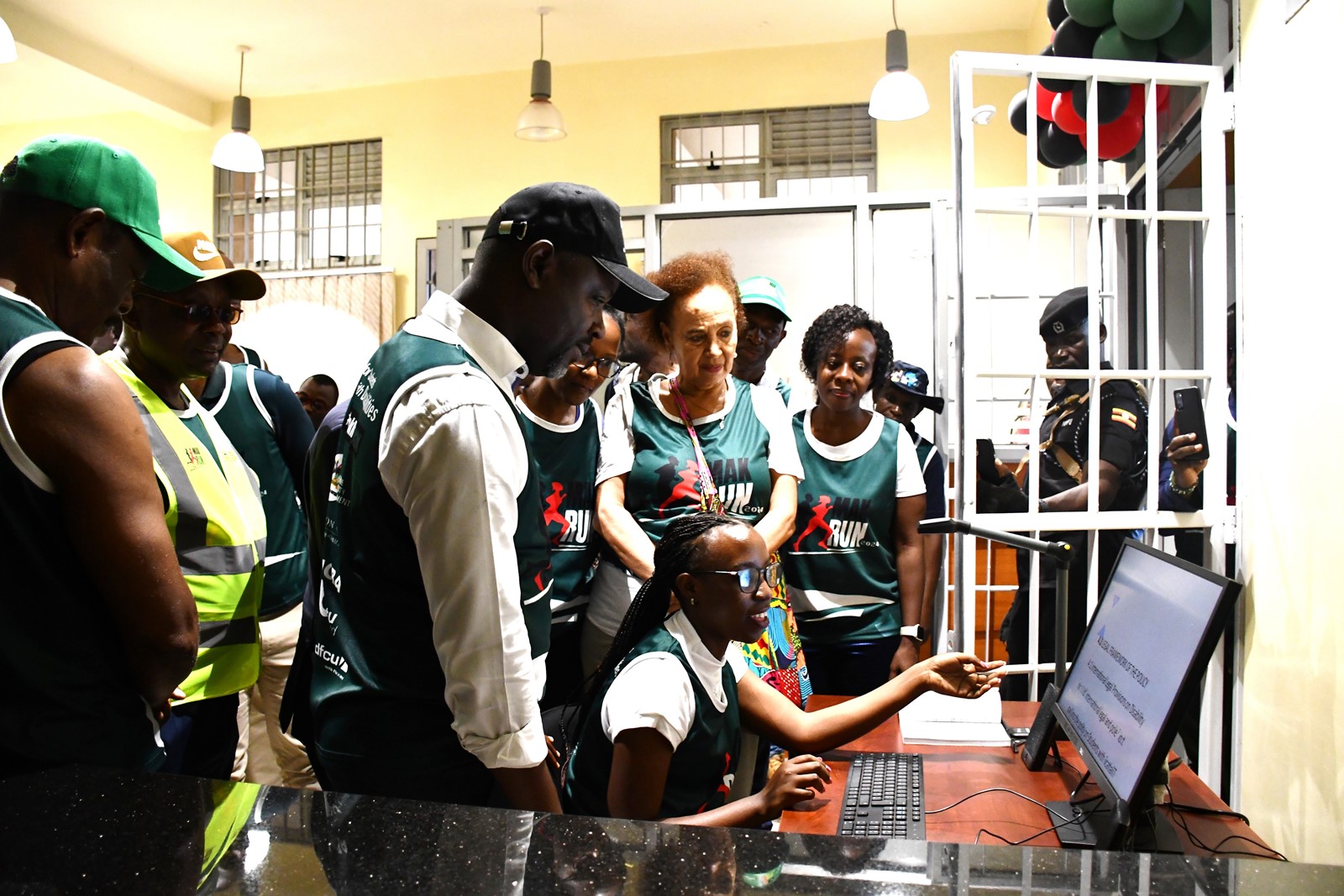
Students with disabilities at Makerere University have been requested to stop seeking for special attention and instead look for solutions and opportunities for personal growth.
This was during a mental wellness, inclusion and safeguarding session organized by the Dean of Students office and the Mastercard Foundation Scholars Program at Makerere University.
Addressing students on mental health and disability inclusion, Mr. Marvin Ggaliwango, a lecturer at the College of Computing and Information Sciences (CoCIS), noted that if the students stop complaining, they will become empowered to take charge of their own development, build resilience and engage confidently in both academic and social environments.
“Turn your lived experiences into tools for innovation. Stop complaining and start creating solutions for yourselves. You are the one living this life, and that gives you the authority to be an expert. When you develop a solution, it doesn’t just benefit you, it helps others too, by removing barriers,” Mr. Marvin Ggaliwango, said.
He encouraged students to see themselves not as victims of circumstance, but as active participants and co-creators of the inclusive environment they wish to experience.
“Learn how to communicate effectively and humbly. If you have a problem, express yourself clearly. Do not isolate yourself or feel resentful. You are not defined by disability, you may face disadvantages, but you still have ability,” he encouraged.
Throughout the session, students listened attentively as he emphasized the importance of self-awareness and personal responsibility, urging them to understand their strengths, acknowledge their limitations and take deliberate steps toward personal growth while contributing positively to the University community.
“We must enhance and ensure that our mental health is number one. Always choose yourself first. Choose what makes you happy and protect your peace. If you are at peace with yourself, your academics will improve. There is a strong link between mental wellness and academic success,” Mr. Ggaliwango, noted.
In his speech, Mr. Musa Mwambu, the Disability Inclusion Advisor at Light for the World Uganda, called upon the students with disabilities to enhance and ensure that their mental health is prioritized.
“As students living with disabilities, sometimes you over expect, because you have a disability you should be given, listened to and when people do not listen to you, you attribute it to your disability, get it from me, even those without disabilities are not listened too. Things are not happening to you because of your disability it is because of the world we live in. Everything that happens to you can happen to others,” Mr Mwambu, noted.
“Have fun with your life. Make yourself happy and be smart. Present yourself in public confidently wherever you go. The way you carry yourself can improve your mental health and how others perceive you,” Mr. Mwambu said.
He reminded the students that gaining admission to Makerere is itself a milestone.
“There are many people without disabilities who have never stepped at Makerere University. Find something that empowers you and hold on to it. You may have a physical impairment, but if you are brilliant in class, you can lead discussions and inspire others,” he added.

During the session, Dr. Rodney Rugyema, the Acting Principal Warden, welcomed the students back from the long holiday. He assured them that the University is committed to their safety and well-being while on campus.
Dr. Rugyema emphasized that the University has systems in place to protect students, both physically and psychologically and encouraged them to report any concerns promptly.
“When you are at the University, you are not on your own, we are always here for you. For us to engage you on mental wellness and inclusion, we want you to be in the right state of mind, whole and complete,” Dr Rugyema, said.
He added: “We are here to empower you and we are calling upon you not be a risk for yourself and always be able to detect risks that are likely to affect your mental health and works towards avoiding them and reporting them to ensure that the University manages them before they escalate into real harm whose impact is more serious than you can think,”
During the session, Ms. Diane Nabikolo Osiru highlighted the University’s broader commitment to safeguarding.
Safeguarding at Makerere University refers to measures put in place to promote safety and wellness of all students, staffs and other stakeholders.
“At Makerere University, safety is not a luxury for few. but it is a right for every student. As the semesters begins, we are urging you to learn how to identify signs of harm or abuses and report them to the appropriate safeguarding contact points,” Ms Nabikolo, said.
For support in case of any harm or abuse, International and Refugee Students, can access support through the Advancement and International Office, while Students with Disabilities, can utilize the Disability Support Center. Those with personal and emotional challenges, can visit the Counselling and Guidance Centre.
In his speech, Dr Joab Agaba, a Lecturer in the College of Computing and Information Sciences, guided students how to report risks and incidences to the MakSafeSpace, the e-reporting platform complimenting the other University traditional reporting channels.
Mr. Henry Nsubuga, the Manager of the Counselling and Guidance Center, shared practical strategies for coping with stress effectively including time management, setting realistic goals, seeking support from peers or counsellors.
Students speak out
Shanitah Nahamya, 2nd year student of the Bachelor of Adult and Community Education
“I have learned how to respectfully and appropriately engage with students with disabilities. In the past, I often felt pity when I encountered them, but now I understand that what they need is not pity, it is respect, support, and equal opportunity.”
Guo Dorothy Geri, 1st year student of the Bachelor of Commerce
“I have learnt how to use inclusive language. Before offering help to a student with a disability, I will first ask them, because not all the time do they need our help. You might think someone wants to be helped to cross the road, yet they are waiting for someone.”
Valentines Doris Aduka, 1st Year student of the Bachelor of Biomedical Science
“I have been calling students with disabilities special names, thinking it was kind. But I have learned that they do not want to be treated differently or labeled in a special way. What they value most is being treated like everyone else, with respect, dignity, and fairness.”
General
Strengthening Global Partnerships to Advance Research, Innovation, and Graduate Training: Makerere University Hosts Delegation from the University of Warwick
Published
3 days agoon
February 19, 2026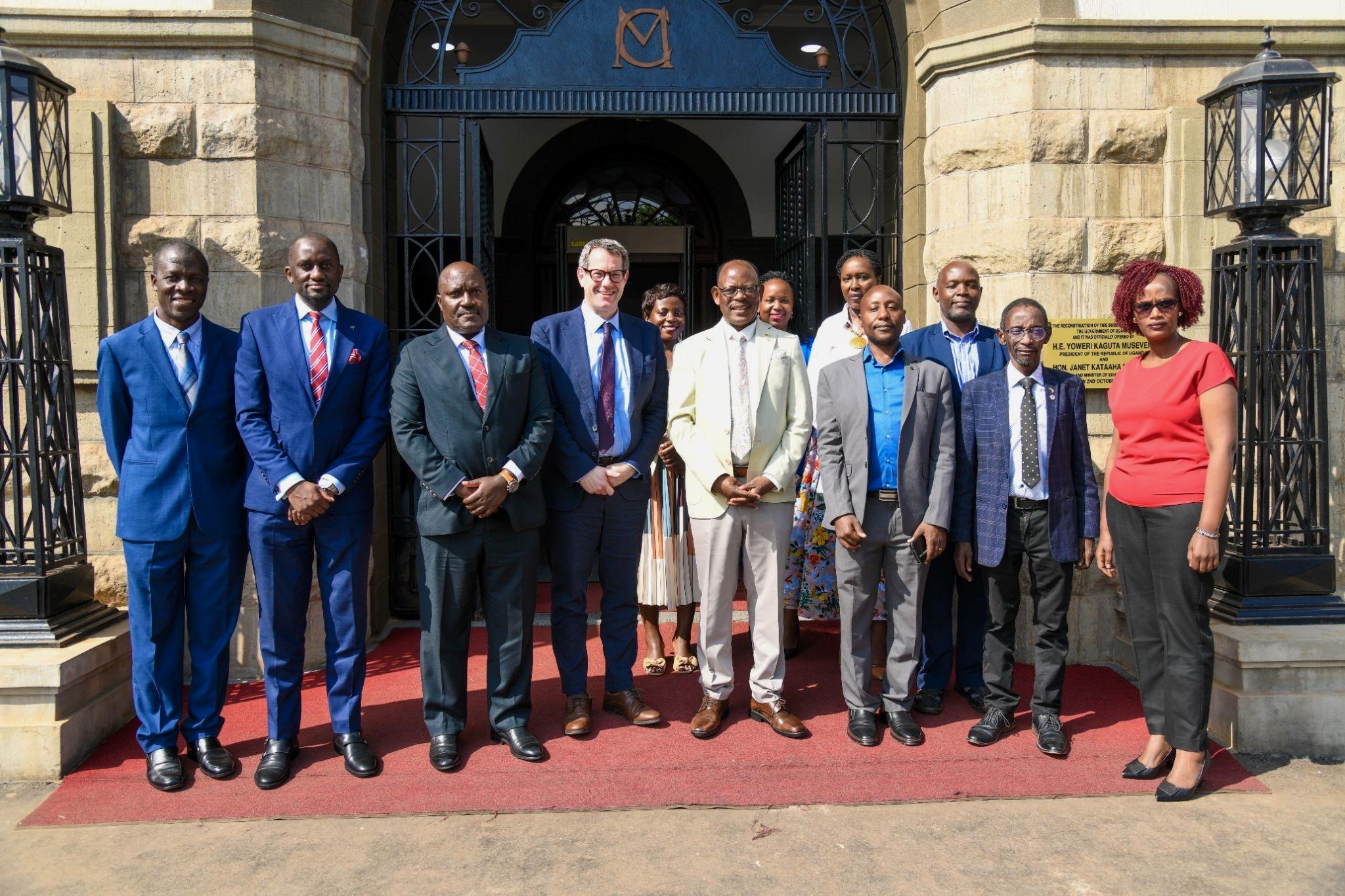
Makerere University continues to deepen its global engagement agenda through strategic partnerships that enhance research, innovation, and graduate training. On Friday, 13th February, 2025, during a recent engagement with a delegation from the University of Warwick (UK), university leaders, researchers, and administrators explored potential collaborations to address pressing development challenges and strengthen institutional capacity.
Expanding Collaboration in Research and Innovation
Welcoming the delegation, Prof. Fred Masagazi-Masaazi, Chairperson of the Makerere University Research and Innovations Fund (Mak-RIF) Grants Management Committee, emphasized the growing dialogue between Makerere University and the University of Warwick. He noted that ongoing discussions are focused on resource mobilization to support research and innovation, as well as building sustainable academic exchanges for both staff and students.
Dr. Roy Mayega, Mak-RIF Coordinator, together with Mrs. Phoebe Lutaaya Kamya, Deputy Coordinator, and members of the Mak-RIF team, highlighted the Fund’s role in catalyzing collaborative research and strengthening partnerships that translate research into societal impact.
Mr. Simon Kizito, Deputy University Secretary, outlined key areas identified for collaboration, including joint research and innovation initiatives, benchmarking visits across disciplines such as law, science, and ICT, and student exchanges designed to strengthen applied research skills. He also pointed to opportunities for training Makerere staff in specialized areas such as tropical diseases and innovation ecosystems, drawing lessons from Warwick’s strong linkages with industry partners located within its campus.
Makerere’s Strategic Priorities and Global Role
In his remarks, the Vice Chancellor underscored the longstanding relationship between Makerere University and the University of Warwick, dating back to the early 1980s, initially through staff training and more recently through collaborative research.
He highlighted Makerere’s historic contribution to leadership development across Africa and beyond, and the University’s continued growth following faculty rebuilding efforts in the 1980s, which have strengthened its research capacity. Today, Makerere has over 1,300 academic staff, more than 1,000 of whom hold PhDs, positioning the institution to play a leading role in knowledge production.
The Vice Chancellor also outlined major thematic areas where partnerships are critical:
- Climate change and food security: Researchers at the College of Agricultural and Environmental Sciences (CAES) are developing drought-resistant and high-yield seed varieties to address changing weather patterns and food insecurity.
- Public health and infectious diseases: Uganda faces frequent outbreaks of diseases such as Ebola and Marburg, and Makerere has built strong capacity in outbreak response and tropical medicine. The University’s medical school and the Infectious Diseases Institute (IDI) continue to play a pivotal role in research and treatment.
- Peace and conflict studies: Through initiatives such as the Rotary Peace Centre, Makerere contributes to training global leaders in conflict resolution.
- Climate-sensitive macroeconomic modelling: Makerere recently hosted a conference in collaboration with the Ministry of Finance, Planning and Economic Development to advocate for climate-responsive macroeconomic modelling and to plan for the establishment of a Centre of Excellence in this field.
- Innovation and technology: The University’s innovation ecosystem has produced notable outputs, including Africa’s first electric vehicle and ongoing work to expand incubation facilities to enable students to graduate with viable enterprises.
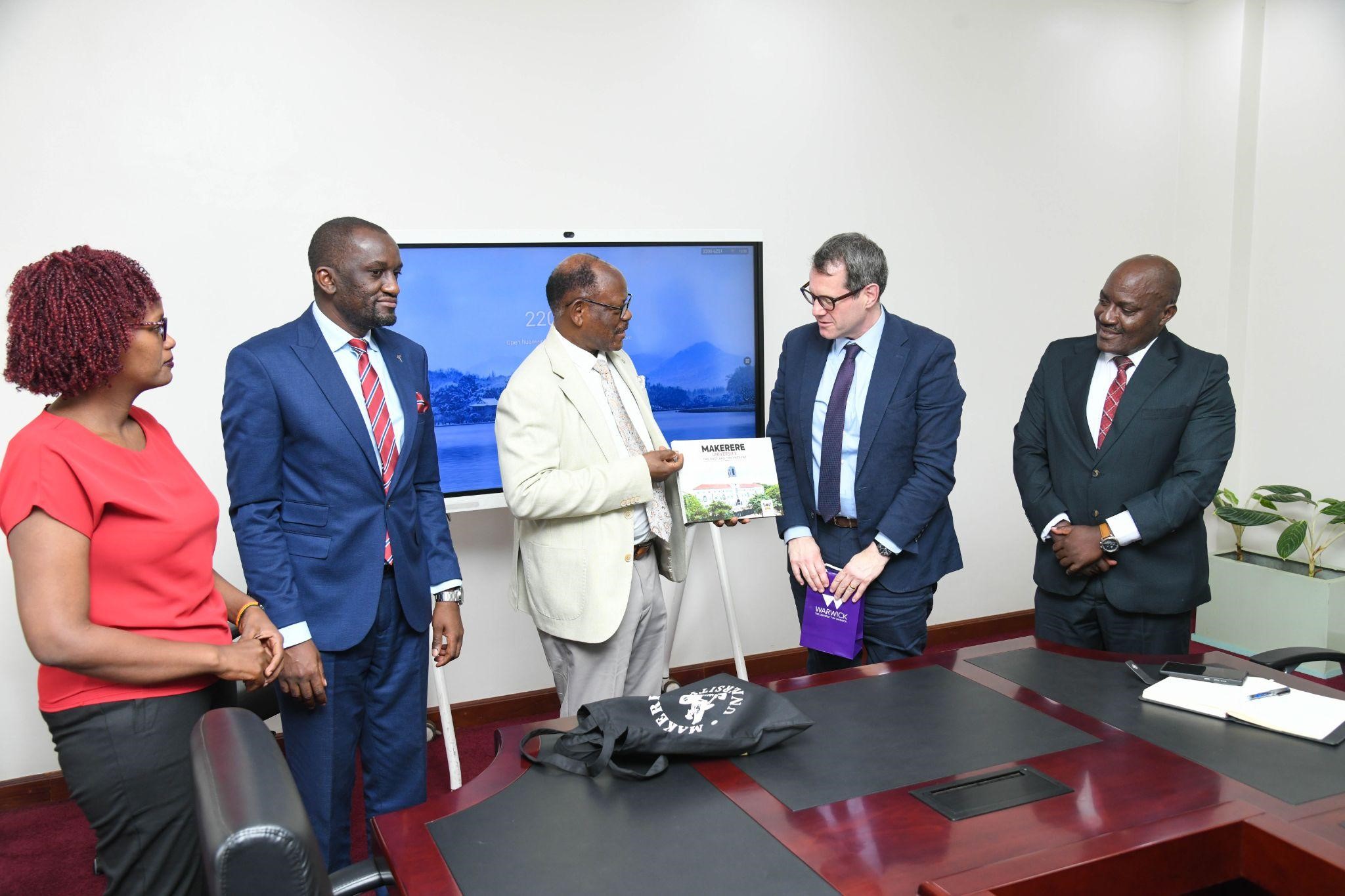
The Vice Chancellor emphasized that addressing youth unemployment remains a central priority, noting that innovation, entrepreneurship, and graduate training are essential to building stable societies.
He further stressed the importance of expanding graduate education. Africa currently produces a small proportion of global research output, and increasing PhD and Master’s training supported by international partnerships remains critical to accelerating knowledge production and development outcomes.
Internationalization and Shared Learning
Speaking on behalf of the University of Warwick, Professor Daniel Branch, Deputy Vice Chancellor, reflected on Warwick’s own institutional journey, noting that its growth has been driven by a strong focus on internationalization, innovation, and research. He expressed Warwick’s commitment to building productive partnerships with African universities, including Makerere, to advance joint research, training, and innovation.
Professor Branch also highlighted the importance of university-industry linkages, citing examples such as collaborations with major manufacturing firms that provide practical training opportunities and inform curriculum development.
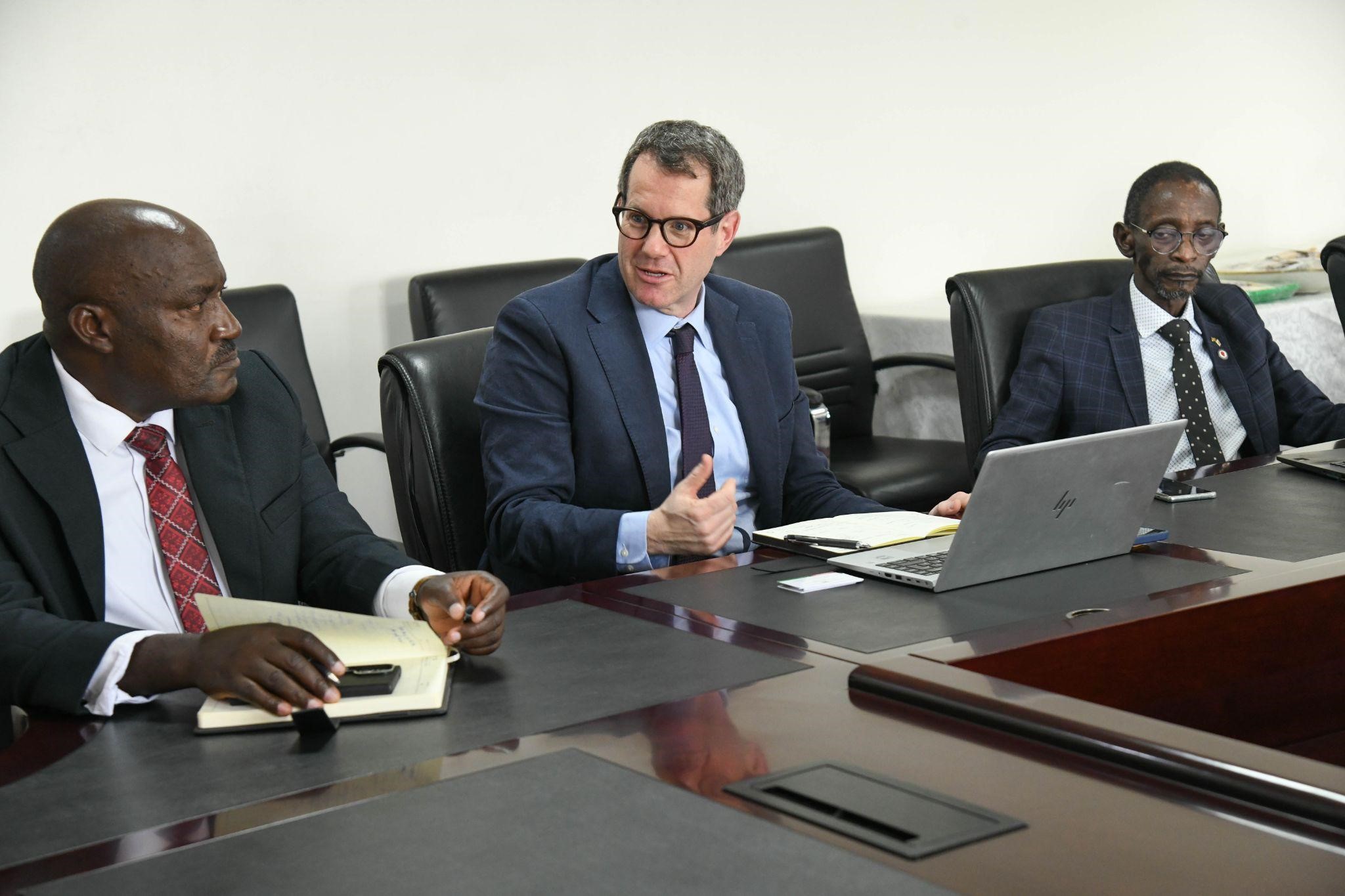
Showcasing Research and Innovation at CEDAT
A second session of the engagement was held at the College of Engineering, Design, Art and Technology (CEDAT), where academic leaders and researchers presented ongoing work across multiple disciplines.
Presentations included:
- Development of a solar water pump through reverse engineering (Dr. Edmund Tumusiime)
- Crane Cloud, a locally developed cloud-computing platform (team from the College of Computing and Information Sciences)
- Profiling gaseous emissions associated with burnt bricks (Dr. Nathan)
- Integration of centralized grid and decentralized renewable off-grid systems: a techno-economic analysis (Dr. Abubaker Waswa)
- Innovation and digitalization pathways for affordable housing in Sub-Saharan Africa (Prof. Stephen Mukiibi)
The session was attended by CEDAT leadership, including the Principal, Prof. Moses Musinguzi, as well as deans and heads of department from engineering, built environment, and industrial and fine arts. The day’s activities were concluded with a tour of Makerere University’s Innovation Hub.
The engagement reaffirmed Makerere University’s commitment to building strong, mutually beneficial partnerships that accelerate research, strengthen graduate training, and drive innovation. As global challenges such as climate change, public health threats, and youth unemployment intensify, collaboration among universities remains essential to developing scalable, evidence-based solutions.
Through partnerships such as the one Makerere University and the University of Warwick hope to activate through a Memorandum of Understanding in the near future, Makerere continues to position itself as a leading research-intensive university dedicated to transforming society through knowledge, innovation, and global cooperation.
Caroline Kainomugisha is the Communications Officer, Advancement Office, Makerere University.
General
Mastercard Foundation Scholars embrace and honour their rich cultural diversity
Published
4 days agoon
February 18, 2026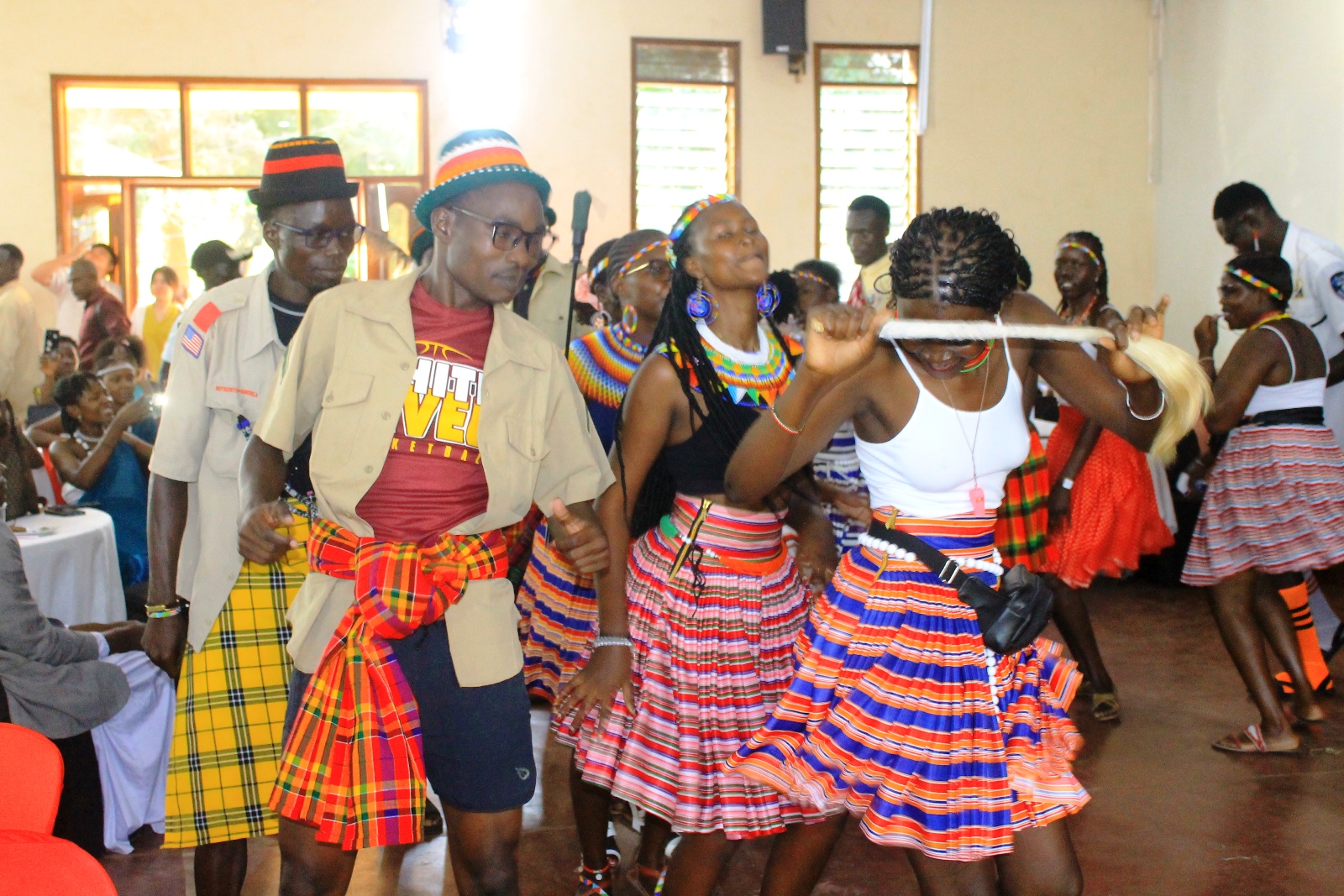
On the evening of Friday, 13th February 2026, the Scholars of Mastercard Foundation embraced the new semester with enthusiasm and celebration, showcasing their rich cultural diversity at the annual cultural dinner. This event not only fostered a sense of community but also highlighted the importance of cultural exchange and understanding among the scholars. The purpose of the cultural dinner is to foster unity in diversity within the Scholars community and to enable young people to appreciate and respect each other’s cultural differences.
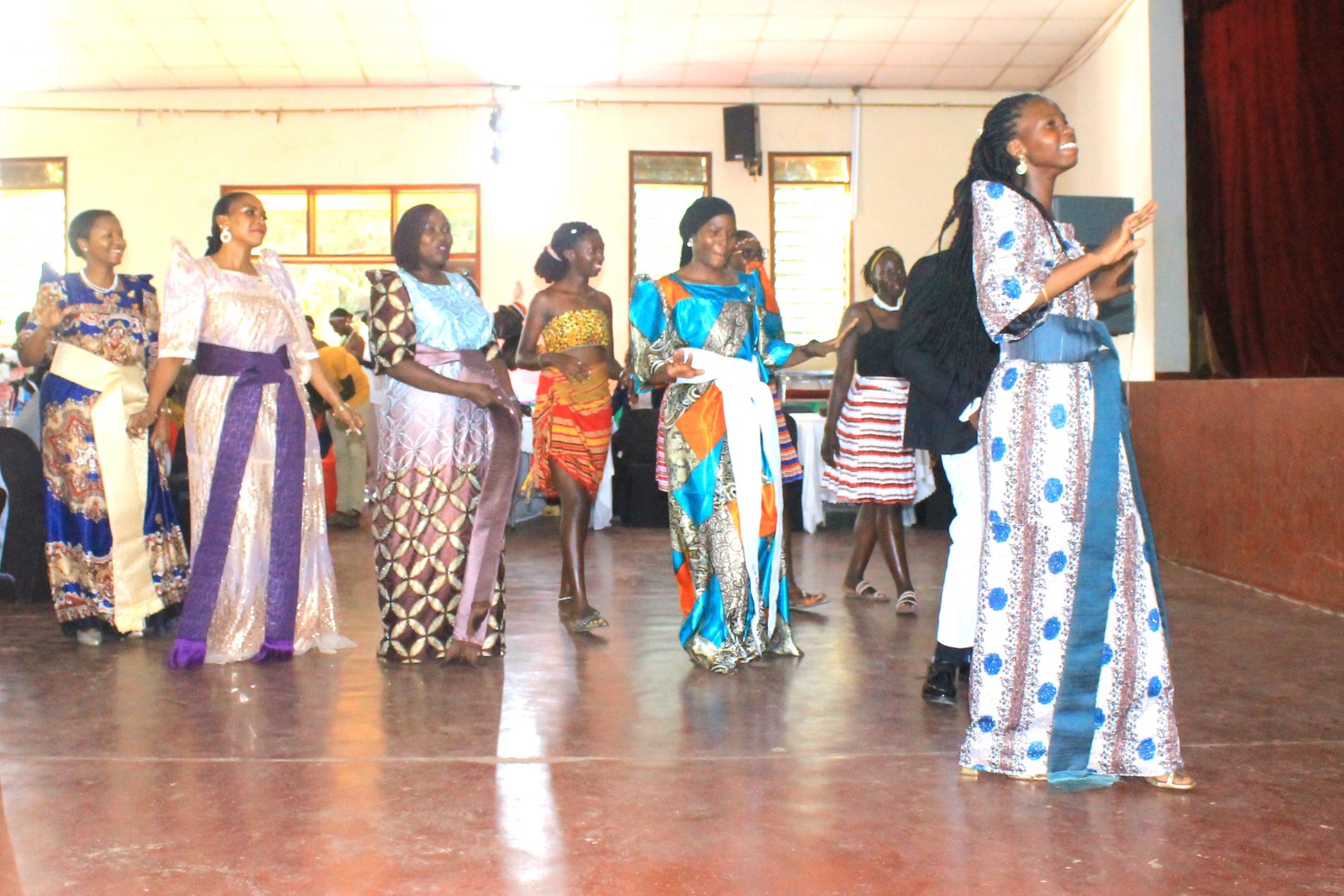
The Mastercard Foundation Scholars community at Makerere University is a vibrant tapestry of countries, cultures, and backgrounds. In recognition of this richness, the Program team has proposed organising an annual cultural dinner to kick off each new semester. This event aims to achieve several important objectives:
- Promote mutual understanding and cross-cultural appreciation among Scholars.
- Celebrate and highlight the unique cultural identities within our community.
- Encourage confidence and creativity through a dynamic talent showcase.
- Foster a sense of unity and excitement as we embark on the new academic semester together.
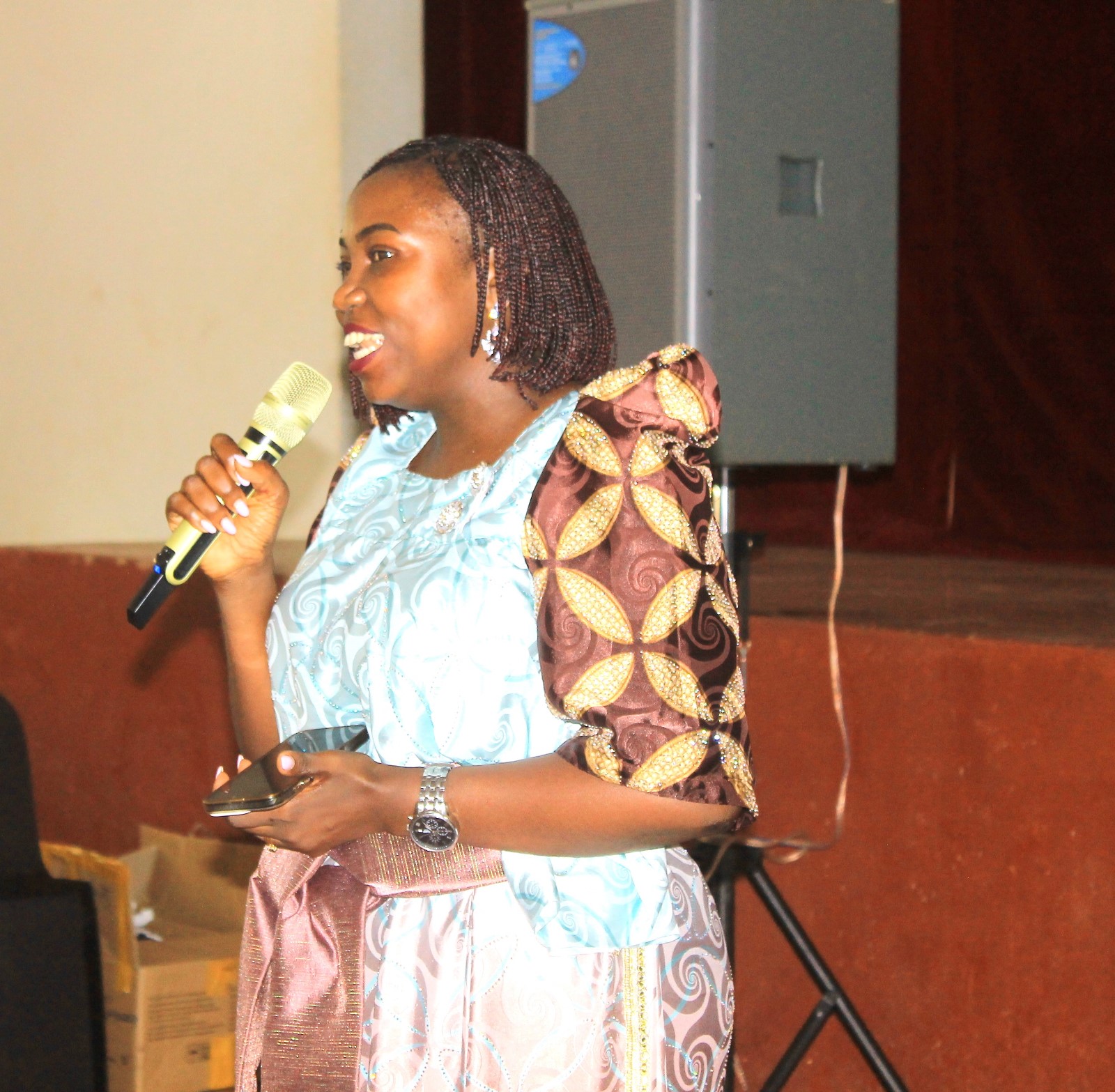
During the event, the Scholars proudly showcased their diverse cultures through a vibrant display of traditional attire, engaging dances, delectable dishes, and meaningful expressions in their native languages. The event showcased a rich tapestry of cultures, including the Baganda from Central Uganda; the Banyankore, Bakiga, Batooro, and Banyoro from Western Uganda; the Acholi from the North; the Karamojong from the Northeast; and the Basoga and Bagisu from the Eastern region, among many other indigenous tribes in Uganda. Additionally, attendees enjoyed cultural performances from South Sudan, Rwanda, and the Democratic Republic of Congo, celebrating the unique heritage of each community.
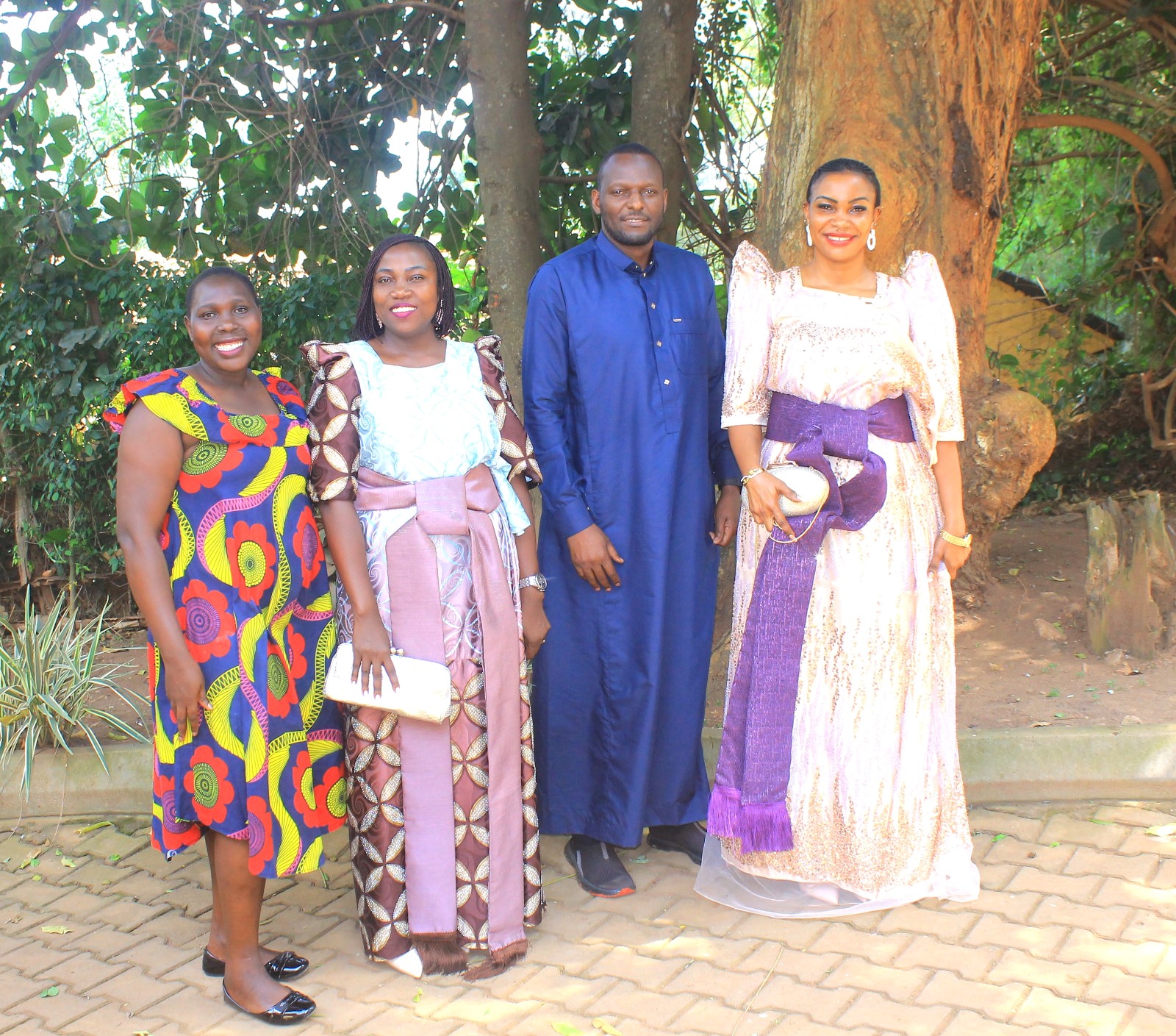
The event also featured a vibrant showcase of cultural attire, accompanied by traditional songs and dances. Attendees enjoyed cultural dress modelling, engaging performances, art displays, and interactive quizzes, culminating in exciting prizes awarded to outstanding performers. This diverse array of activities contributed to a rich celebration of creativity and cultural exchange.
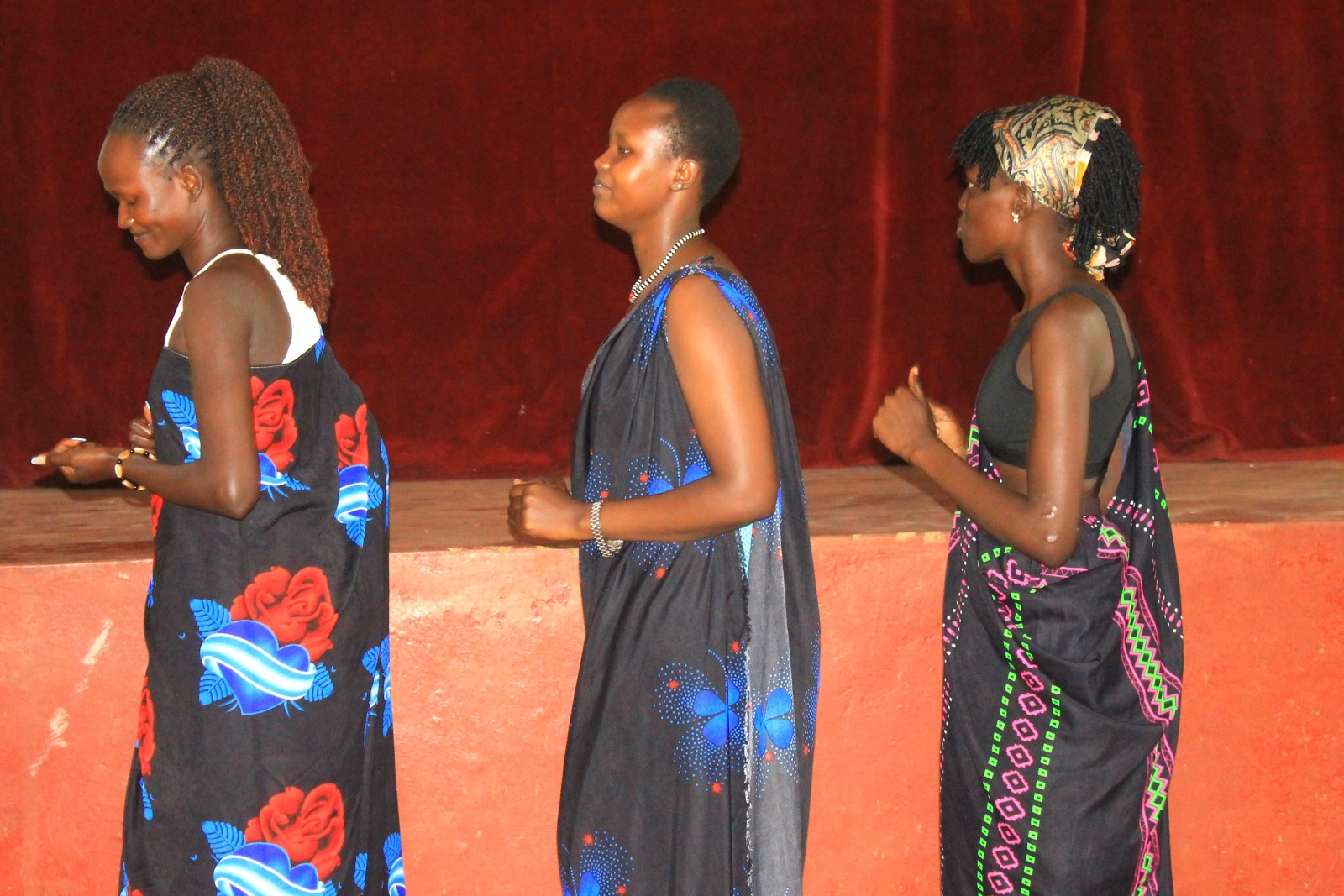
The Mastercard Foundation Scholars Program at Makerere University is committed to fostering holistic development, community building, and leadership among Scholars. At the start of each semester, the Program Team hosts a cultural dinner to reconnect the Scholars community, share key Program updates, and create an inclusive space to strengthen belonging and engagement. The cultural dinner is a critical platform for raising awareness of the need to appreciate and respect cultural diversity.
Bernard Buteera is the Principal Communications Officer for the Mastercard Foundation Scholars Program at Makerere University.
More Photos from the Dinner
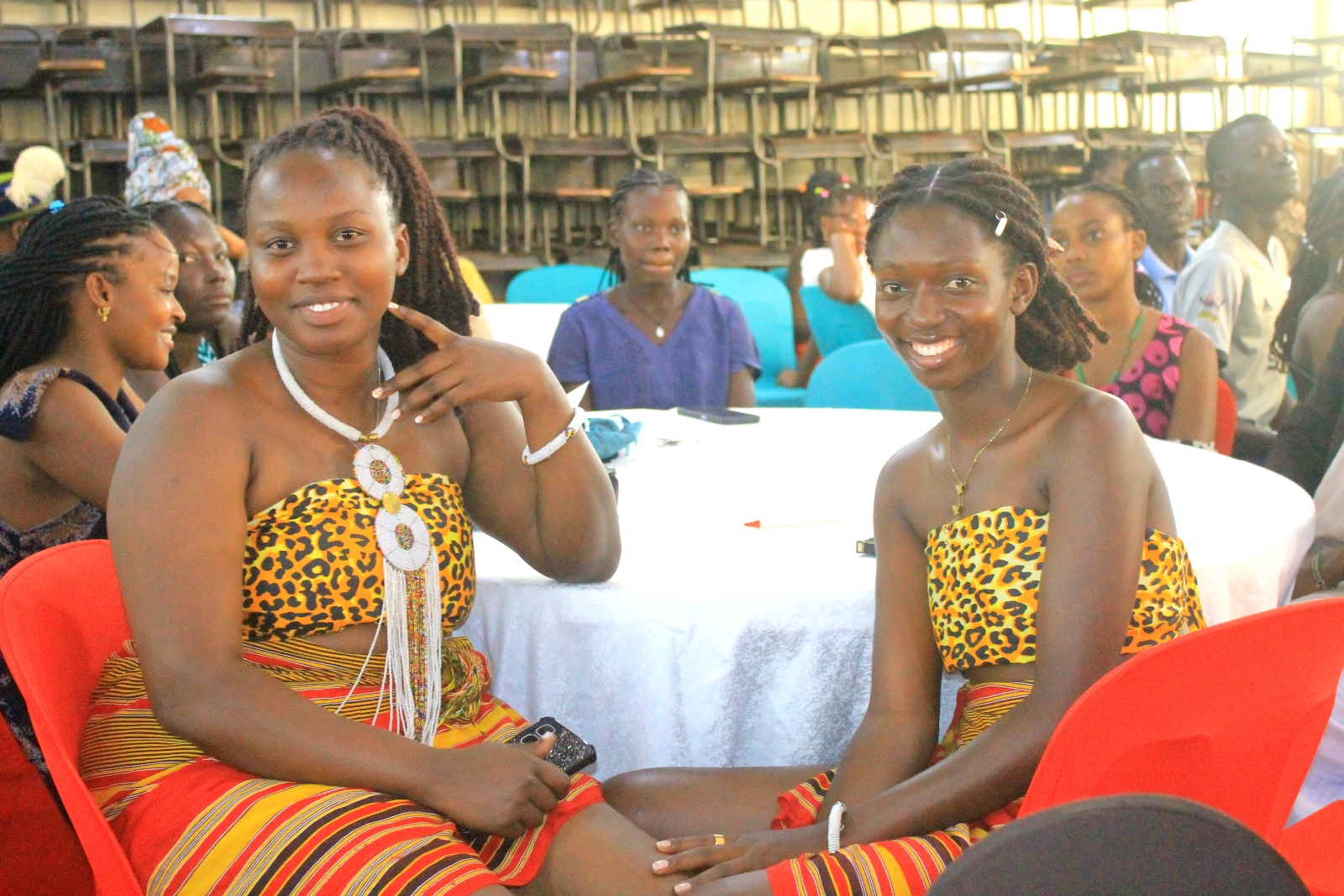
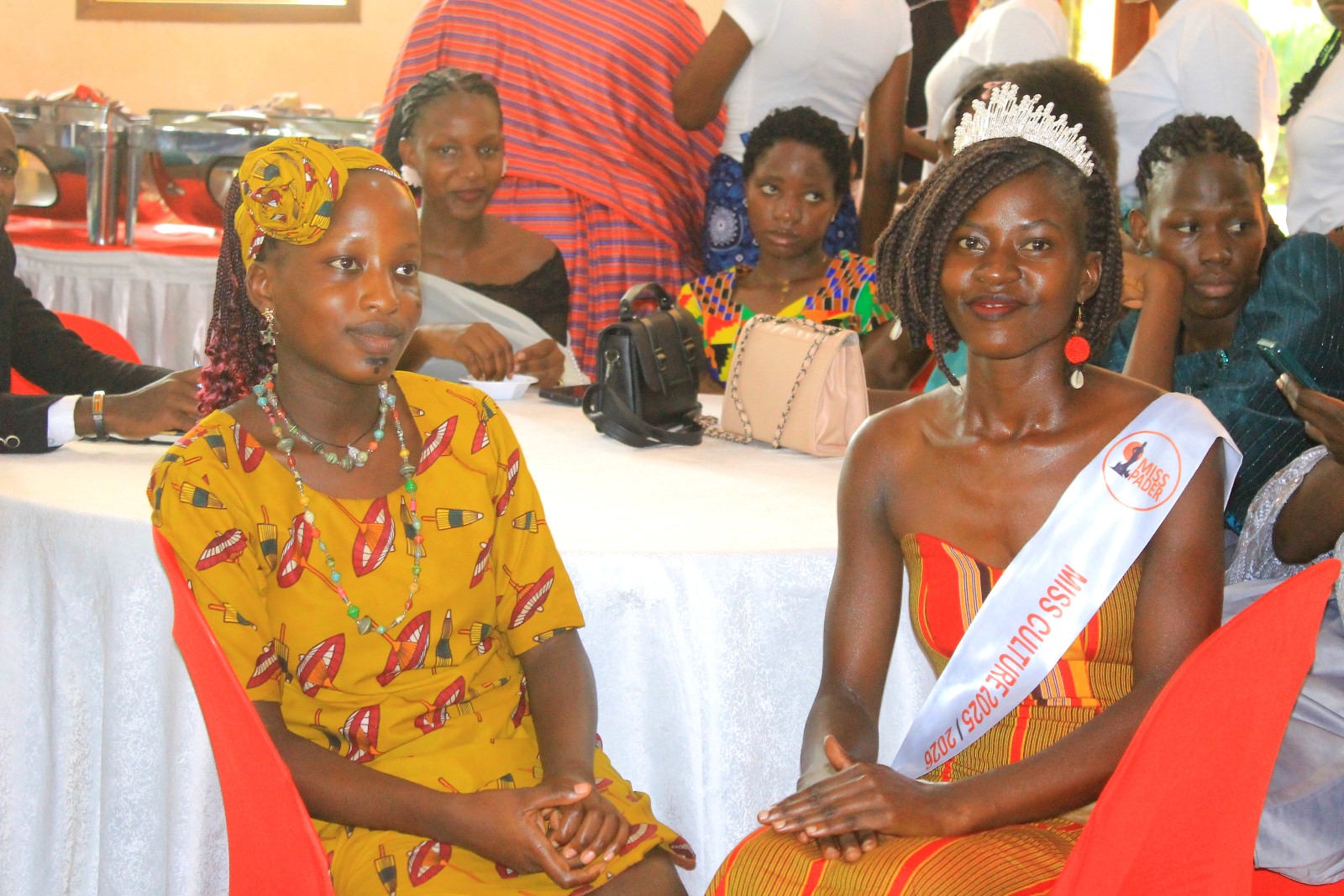
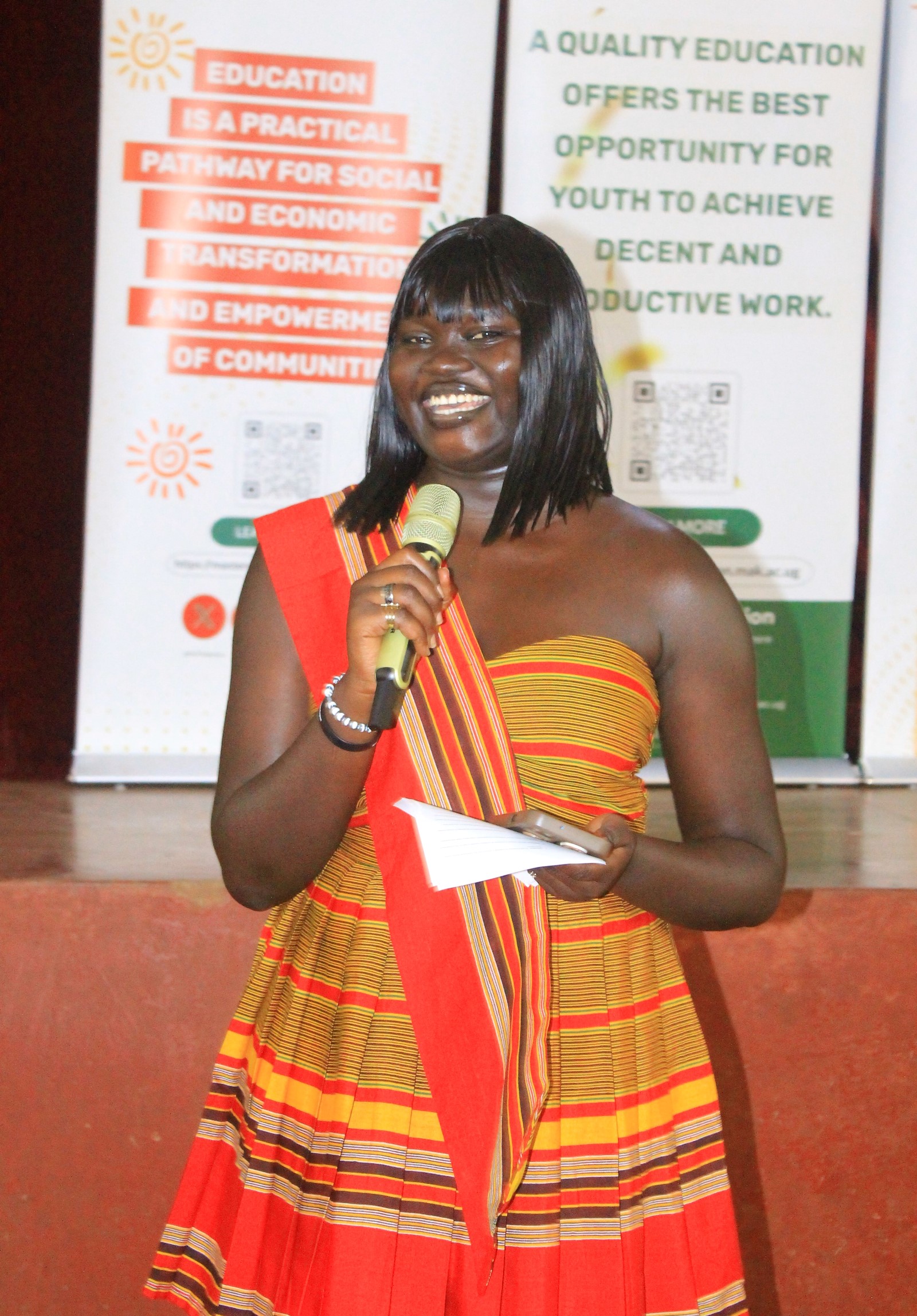
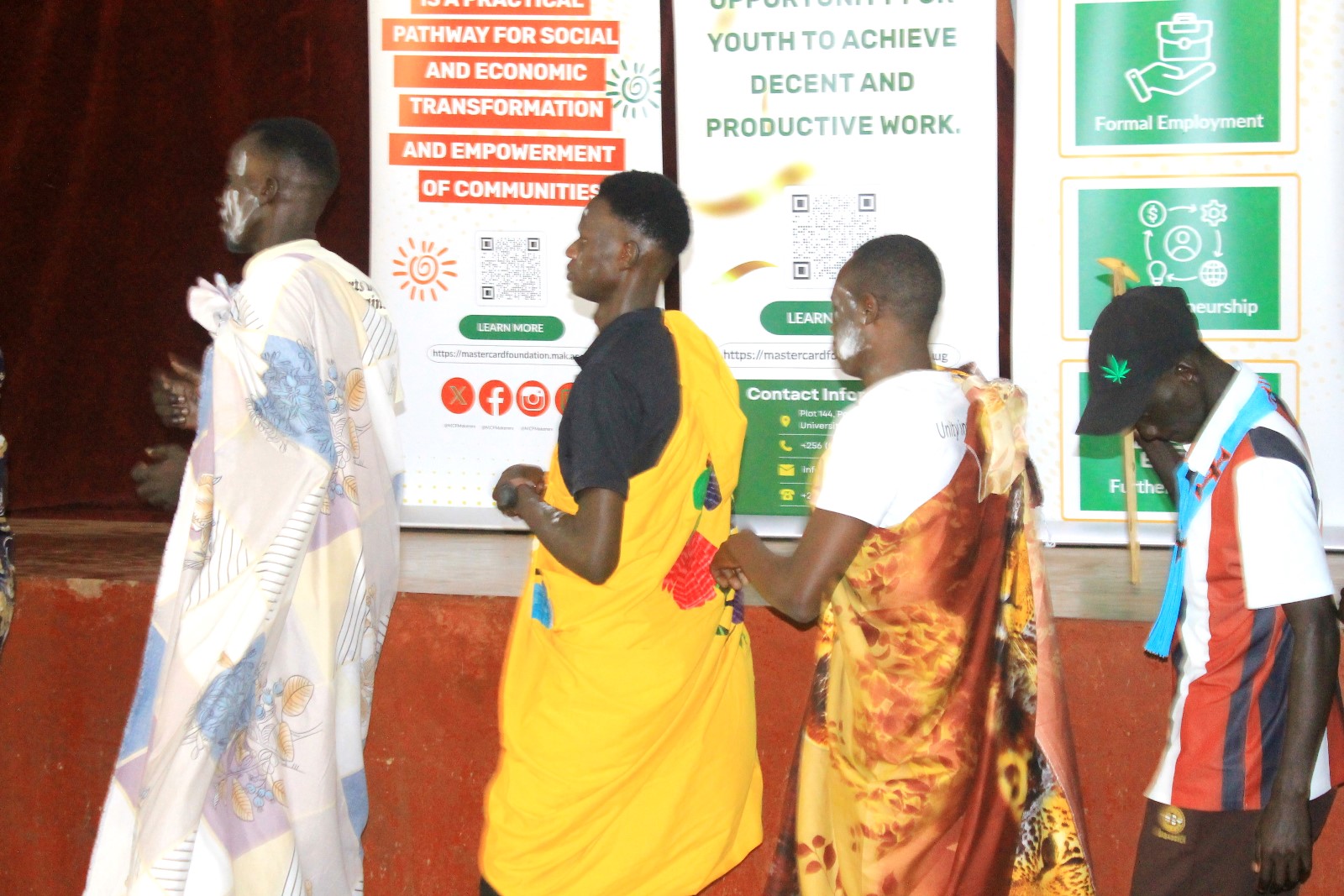
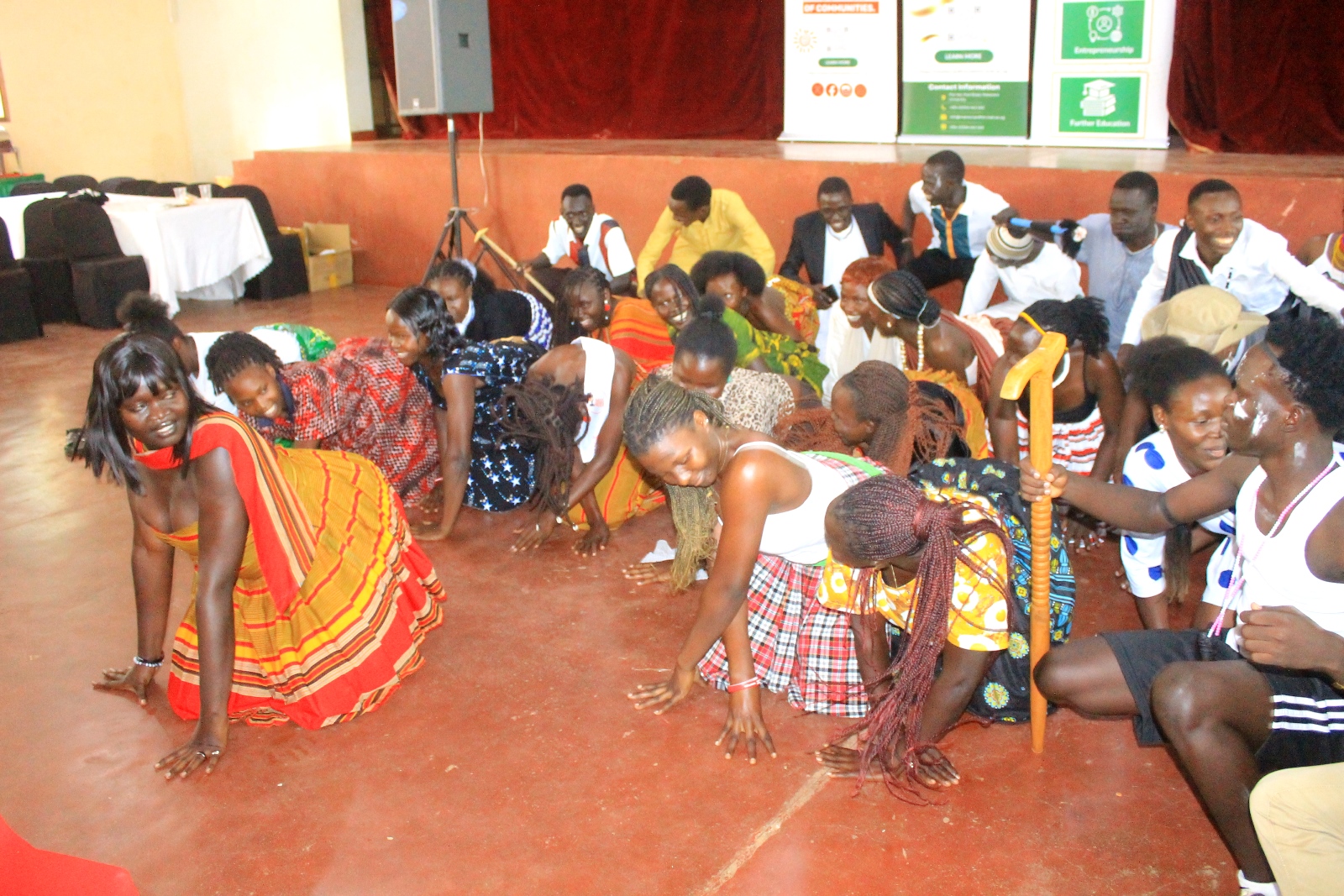
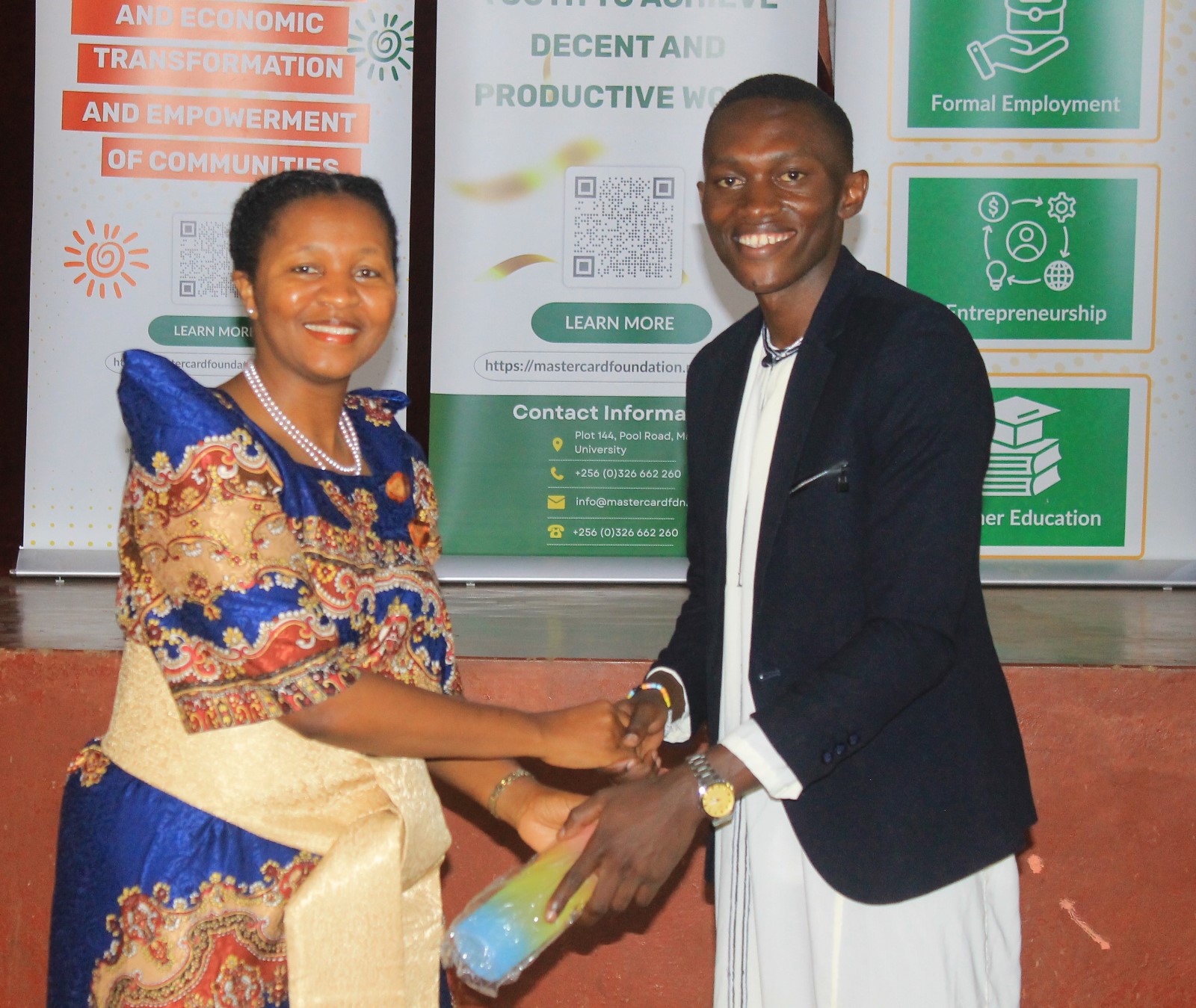
Trending
-

 General2 weeks ago
General2 weeks agoAptitude Exam (Paper 1) Results for the Mature Age Entry Scheme 2026/2027
-

 Health4 days ago
Health4 days agoUganda has until 2030 to end Open Defecation as Ntaro’s PhD Examines Kabale’s Progress
-

 Health2 weeks ago
Health2 weeks agoHow Jimmy Osuret Turned Childhood Trauma into Evidence for Safer School Crossings
-

 General2 weeks ago
General2 weeks agoFor Youth by Youth – Call for Second Cohort Applications
-

 General4 days ago
General4 days agoMastercard Foundation Scholars embrace and honour their rich cultural diversity
